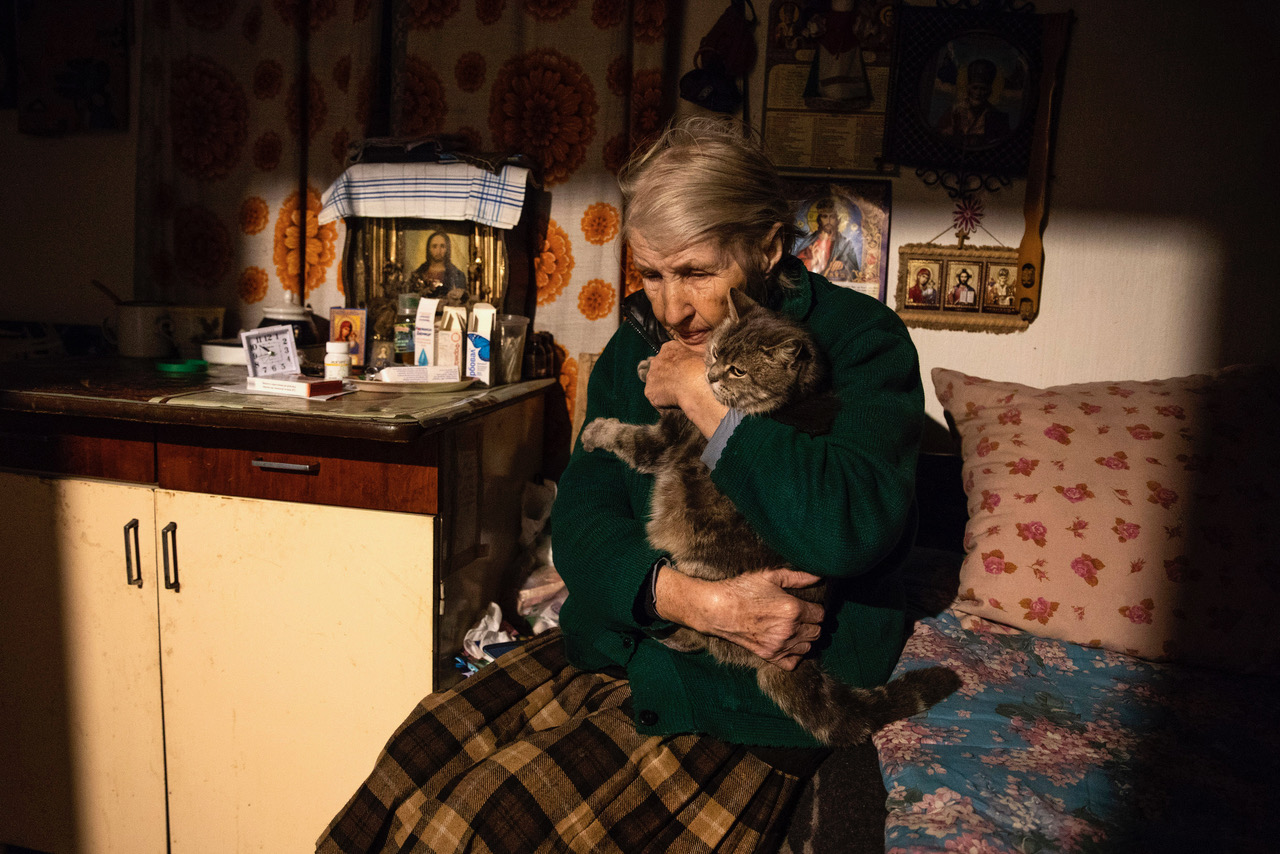
My focus in Ukraine is the vulnerable and fragile elderly population trapped by a war that leaves their lives frozen by conflict, impoverished, and living in dilapidated homes. Ukraine has the highest proportion of elderly affected by war in the world. The ongoing armed conflict has had a staggering human toll. Nearly a third of the country’s 3.4 million people that depend on humanitarian assistance are over 60 years of age.
After almost five years of war, large areas of the Donbas region, which includes a 500-km "contact line," remain under the control of separatists. The war has displaced more than 1.5 million with over 10,000 civilian casualties. In 2014, when the violence broke out, many young people left, while the elderly stayed behind just barely surviving.
Ukraine’s elderly are trapped in a war zone, listening to the occasional bursts of shooting and shelling near the line of contact that separates the Ukrainian government forces and the Russia-backed rebel forces. For these pensioners who have exhausted their resources, economic difficulties add to the stress of daily life. Restrictive government measures introduced last year led to over hundreds of thousands of the elderly losing access to their pensions, their only source of financial security.
In pursuit of destroyed documents to collect their pension, the elderly are forced to travel across the conflict-torn borders of the Donbas region of eastern Ukraine, which is a difficult journey. They often wait in long lines and in harsh weather conditions with limited wheelchair access available. Many are often reluctant to leave their homes and so are the last to flee from danger, left abandoned without resources of family care.
2020 Updates:
-
The conflict between Ukraine and Russia has entered its sixth year. 13,000 people have been killed.
-
Up to three million people live in the territories occupied by the Russian-backed separatists in the Donetsk and Luhansk regions governed by the self-proclaimed authorities. Approximately 36 percent of the population consists of elderly pensioners, many with acute health problems.
-
People fear war more than coronavirus. The vast majority of people believe that the problem is exaggerated as it can be difficult to get proper information, especially for the elderly.
-
In Eastern Ukraine, the health system has been severely degraded by five years of war and the out-migration of an estimated 1,500 healthcare professionals from the region since the fighting began in 2014. Medical workers are immensely underpaid, only earning $70 on a monthly basis.
-
The elderly can’t receive their Ukrainian pension as the entry/exit checkpoints have been closed to prevent the transmission of COVID-19. Meanwhile, the border between Russia and the separatist-controlled territories remains open.
-
On March 25, 2020, the United Nations took steps to help the Donbas region. It announced a plan to raise $33 million for people living on both sides of the contact line to fight COVID-19. The money will go towards health care, food, and support to support the elderly and people with disabilities.
-
De facto authorities at first denied any cases of infection within the territories they control. However, on April 11, 2020, Kremlin-backed authorities in Donetsk Oblast named some cases, but much is hidden from the public, and most fear that the real numbers of infection are being concealed.
-
Even though several major prisoner swaps took place since last year, peace talks fail to bring peace to the region. Even today, occasional shelling takes place along the contact line.











